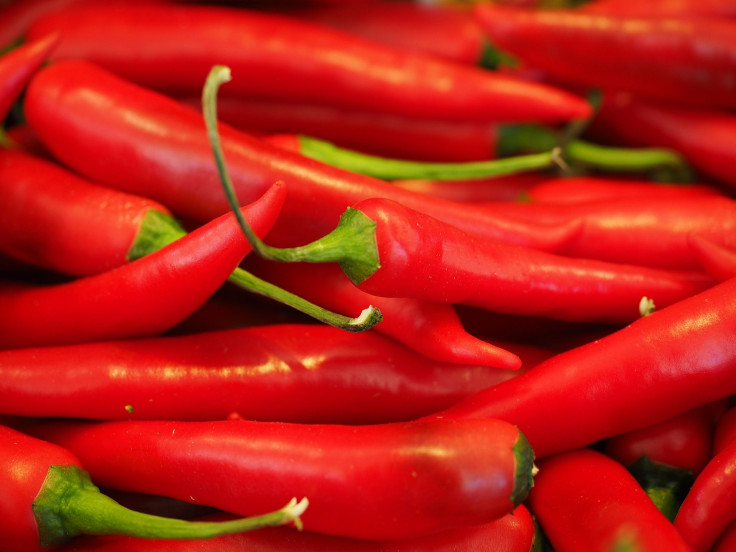Why Some People Are Addicted To Spicy Food: Masochism, Pain Tolerance, And More

Have you ever wondered why some people can eat whole chili peppers without batting an eye but you can’t hang? Well scientists aren’t quite sure why some can down a bottle of habanero sauce while others can’t even handle a jalapeno, however, there are a few common theories.
One thought is that some people might just be born with less sensitivity to spice. The sensory receptor TRPV1 is basically a protein that opens up in response to physical temperature as well as the fiery molecules in food. These molecules bind to the receptor, which is why eating spicy food makes your tongue feel like it’s on fire.
As SciShow explains, the gene sequence that makes the protein varies by person, so certain variations might be more or less responsive to spice, accounting for the differences in tolerance. Studies show that the more you eat, the less sensitive you might be to spicy foods. Some research suggests that as you get used to the heat, you’ll have to eat more to taste the same level of spiciness. So the more you eat, the less burn you might feel.
Others theorize that it’s not that people don’t experience any less pain from eating spicy foods, it’s that they enjoy it. This is known as benign masochism, which means that people are drawn to safe ways of experiencing something dangerous, like a roller coaster ride, or in this case, spicy food. One study of white college students showed that those who liked spicy food were also thrill seekers.
Read: What's Up With The Freudian Slip, And Does It Reveal My Inner Desires?
While there is a chance it could be genetics, many scientists attribute your hot sauce addiction to a learned love of that burn. For more about the science of why you love hot sauce, check out the video from SciShow.
See Also:
Diet Trends 2017: How The Popular 80/10/10 Eating Plan Affects Weight Loss, Blood Sugar
Effects Of A High-Salt Diet On The Body: The Surprising Way Sodium Is Linked to Hunger And Thirst



























